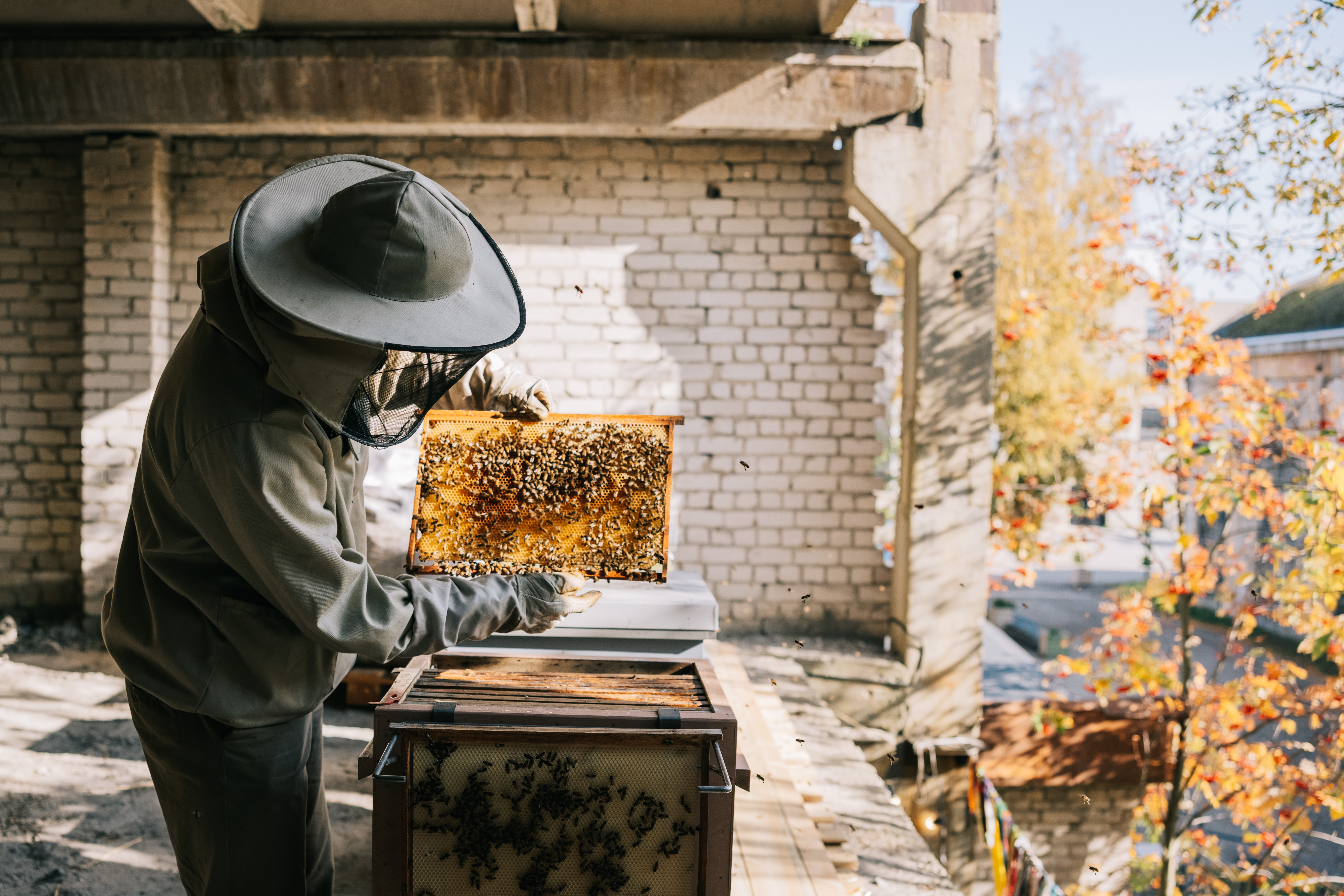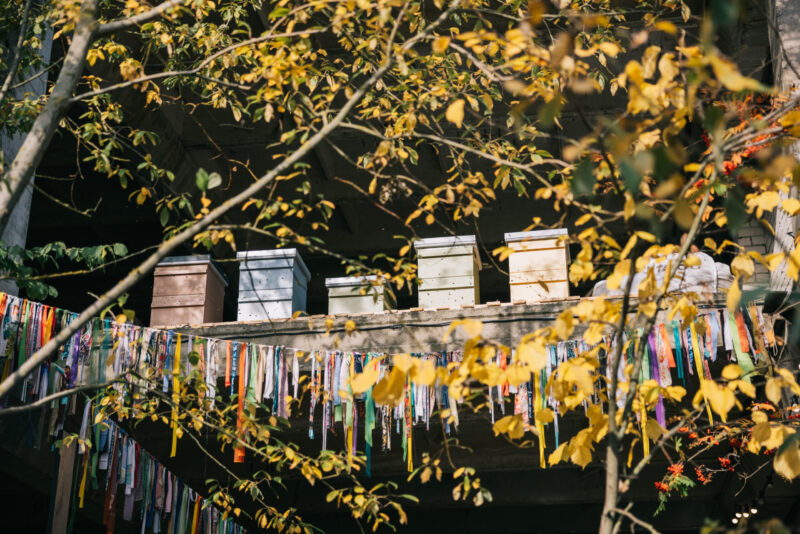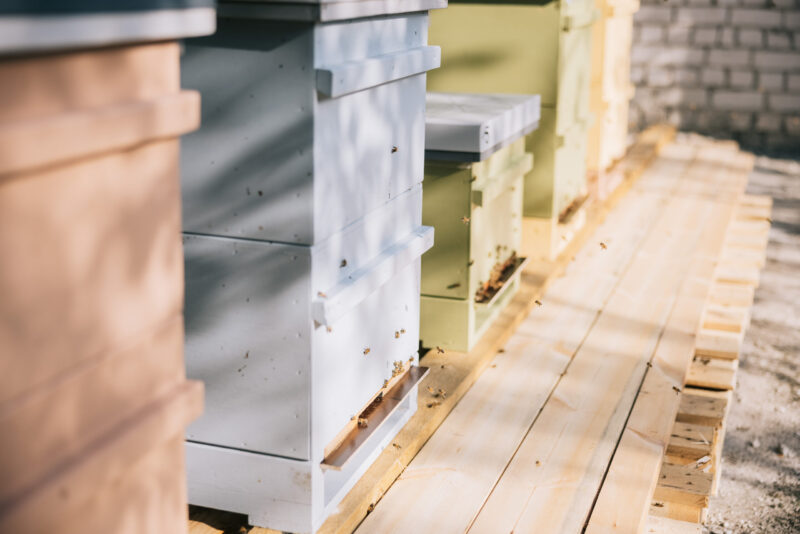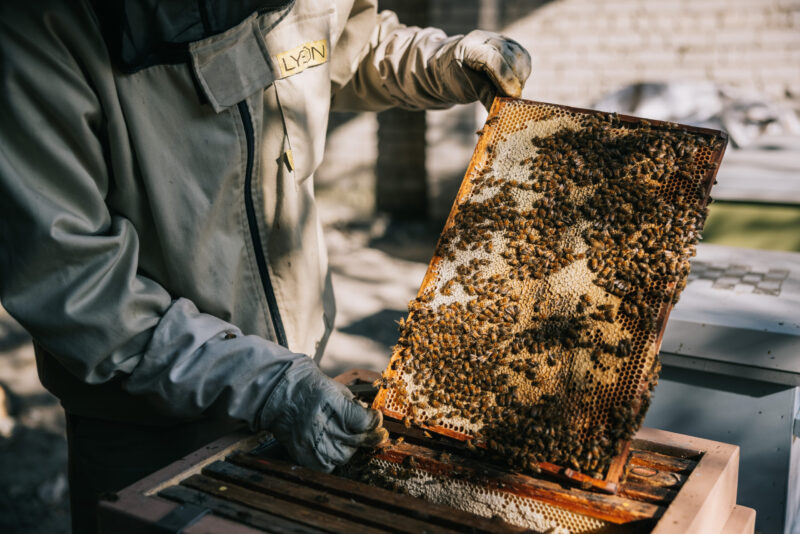
Urban beekeeping
2nd floor of the carcass
I am an Apis Mellifera – European honey bee – the main pollinator of the Kopli Peninsula. I collect nectar from different plants and flowers. I want to promote and contribute to the development of the local environment, multiply the harvest of berries and from fruit trees, and collect pure nectar from various flowers from early spring to late summer. In some years, when the harvest is good, we have some leftovers from our winter stocks for the people who also help us a little.
The process of turning nectar into honey begins when we collect it from the plants. In the hive, we pass the harvest to other bees, who in turn carry it around in the comb cells. When the nectar’s water content has dropped to 17–20%, most of the added sugars have turned into glucose and fructose and we add enzymes. When the combs are filled and the honey has reached the required density, we close it with a wax cover.
You can come and take a peek at us all year round.
Every third bite we take ends up on our table thanks to the pollinators. Meaning – without bees, we wouldn’t have many of our favorite foods! Many fruits, vegetables and berries need pollinating. If bees disappeared, we wouldn’t only lose fruits. Since clover and lucerne, which are the main food of cattle, also need pollination, the diet of cows would also become more one-sided. As a result, milk yields would decrease, less cheese, yogurt, and ice cream could be produced; meat production will also decrease as the amount of animal feed decreases… Many of our favourite foods would disappear and the price of others would skyrocket. A world without bees would be tasteless, colourless, odorless, more one-sided and poorer in nutrients.


